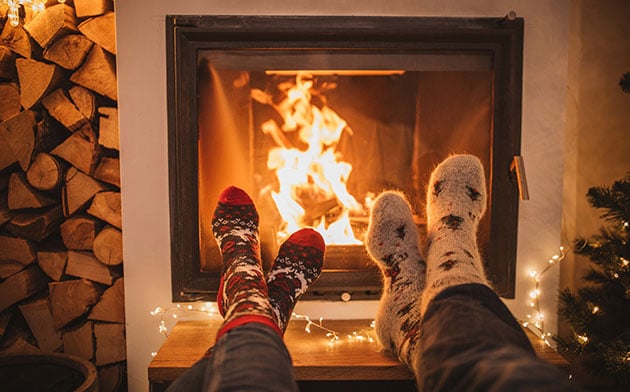Spring and summer are the most popular seasons for house-hunting. But winter has its upsides.
But that shouldn’t stop you from looking for your dream home as the temperatures drop. Though icy driveways and snowed-out open houses can be less than thrilling, there might be some surprising benefits to purchasing a home during the coldest time of year. According to a study by ATTOM Data Solutions, the best day to close on a house was December 4. Since it typically takes 30 to 45 days (and sometimes longer) to close on a home, prospective buyers put in offers as early as late October to try to take advantage of the winter bargains.

Let’s explore reasons why winter is such a prime time to buy a home.
The advantages
Although you might have fewer houses to choose from in winter, you’ll also deal with more motivated sellers. There also will be homes that have been on the market since the previous spring—which means the seller is even more motivated. Plus, the smaller pool of buyers during the winter puts you at an immediate advantage. These factors will make it easier to negotiate a lower price.
You also have leverage to ask the seller to throw in extras—like window treatments, light fixtures, or appliances.
Buying a home in the winter can also mean enjoying better service from all the professionals you work with, since your real estate agent, inspector, lender, and movers will generally have fewer clients before the spring rush.
Finally, inspecting a home in the winter will enable you to see how the house handles harsh weather. A bonus is being able to check out the heating system so there are no surprises after moving into the home.
The challenges
House-hunting in the winter does have a few disadvantages.
A property may lose its curb appeal when it’s covered in ice or is muddy/waterlogged. A normally lush yard of trees, bushes, and blossoming flowers can look stark and bare during cold winter months. Some structural elements, like the septic tank, roof, and A/C system, can also be difficult (or impossible) to inspect in the winter. With fewer hours of daylight, it can also be harder to get a good look at the home, especially if your schedule isn’t flexible for home viewing. Virtual tours (which spiked during the COVID-19 pandemic and don't appear to be going away) can help a little with that, but there’s nothing quite like seeing the home up close.
As mentioned earlier, home-shopping during the winter also means working with fewer options on the market. Sellers know that spring is peak season, so many choose to wait until the weather warms up to put their home up for sale.
Before you go house hunting
Keep these tips in mind before you give your agent a call:
- To see the property in its prime, ask the seller to provide pictures showcasing the yard, pool, patio, or garden during the spring or summer months.
- For home features that are difficult or impossible to inspect because of weather, have the seller provide the following: proof of the last roof inspection or replacement, the most recent day of service for the septic tank (if applicable), and the age of the A/C unit.
- Unexpected weather events may delay some parts of the home-buying process, like the inspection, appraisal, or even the closing. Be sure to keep this in mind when thinking about your timeline.
The real estate market may cool during winter, but if you know how to overcome the challenges and optimize the advantages, you can walk away with a hot deal on a home during the coldest time of year. Whether you’re looking for your first home or downsizing, shopping for a new home in the winter can mean finding your ideal landing spot quickly and for a far better price. And along the way, SELCO Mortgage can help answer questions about your new mortgage loan. Happy hunting!


